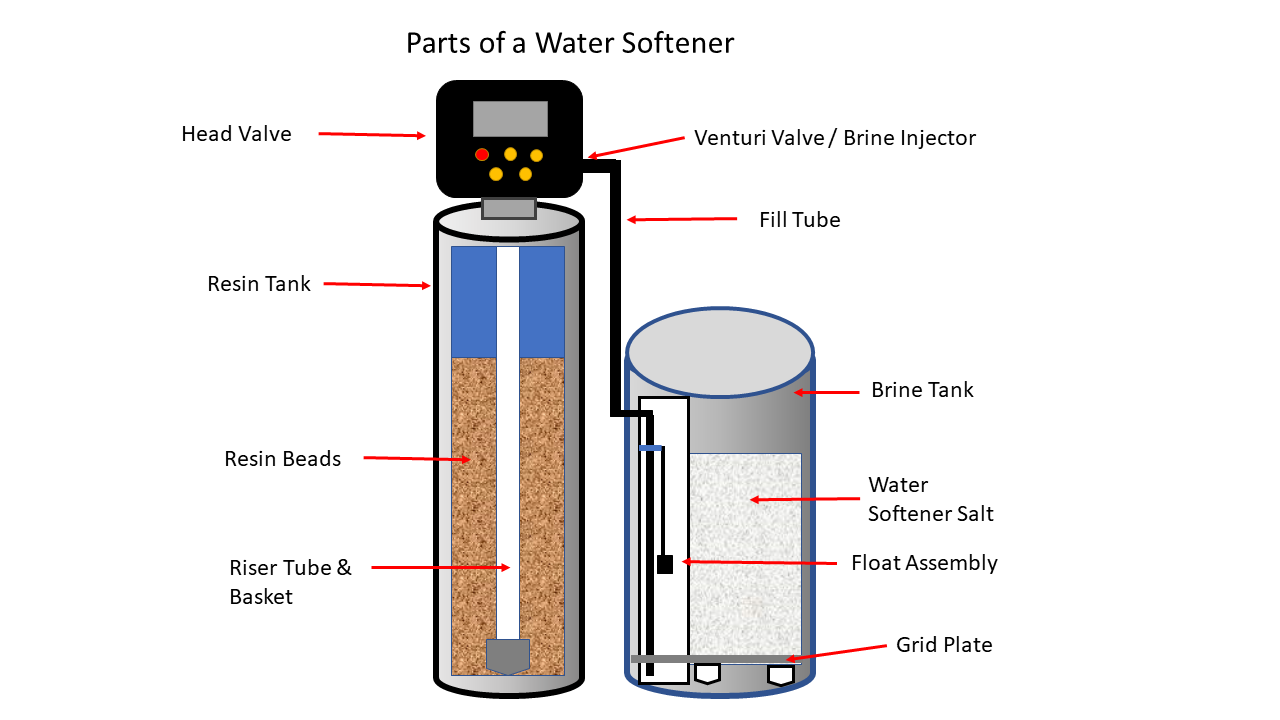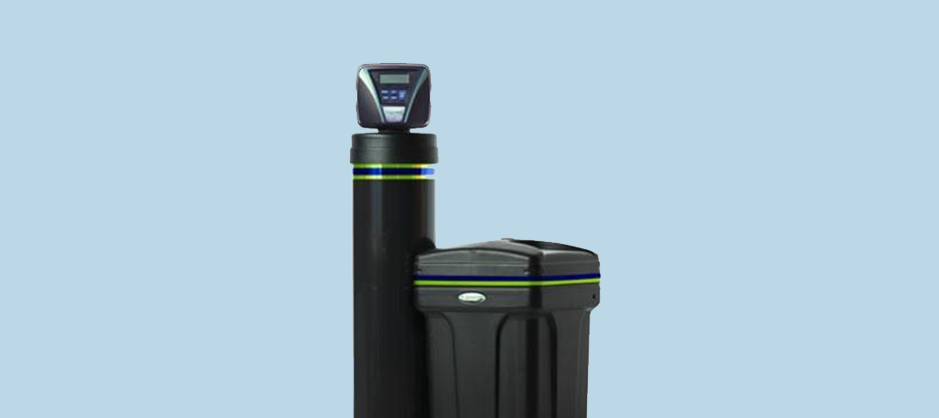Is you water softener making loud noise? A water softener typically operates quietly, but if your water softener is making a loud noise, there could be several reasons behind it. Here are some common causes and potential solutions:
4. Loose parts
5. Salt bridges
WaterSmart has been serving the Waterloo Region for almost 30 years. For the best water softener installation and service around, contact WaterSmart today.
Is Your Water Softener Making Loud Noise? - 9 Reasons Why
1. Regeneration Cycle
Water softeners often go through a regeneration cycle where they flush out the accumulated minerals (usually during the night).
During this process, you may hear noises like clunking, clicking, or gurgling.
If your water softener is making loud noise during this cycle, it’s normal and usually not a cause for concern.
Watch this video to learn more about the water softener regeneration cycle.
2. Air in the Resin Tank
Sometimes, air can get trapped in the resin tank, causing noises when water flows through it.
The resin tank, also known as a resin bed or resin tank container, is a critical component of a water softener system.
It plays a central role in the ion exchange process that removes hardness minerals (usually calcium and magnesium) from the water, thereby "softening" it.
You can try manually regenerating the system to release the trapped air.
3. High Water Pressure
Excessively high water pressure can put stress on the water softener's components, leading to vibrations and noise.
We’ve talked about low water pressure in the past, but high water pressure in your plumbing system can have various causes, and it's essential to address it because excessively high water pressure can lead to damage to your plumbing fixtures, appliances, and pipes.
Installing a pressure reducing valve may help, check out the video below to learn more.
How to Install a Water Pressure Reducing Valve
4. Loose Parts
Is your water softener making loud noise? Maybe this is because something has come loose.
If your water softener is making loud noises due to loose parts, here’s how to address it:
Brine Tank Lid
Check if the lid on the brine tank is not securely in place. A loose lid can vibrate during operation, creating noise. Adjust or tighten it as needed.Bypass Valve
Ensure the bypass valve is tightly secured. If it’s loose, it can rattle as water flows through the system. Tighten any screws or connections.Resin Tank
Inspect the resin tank for any movement. If the tank isn’t firmly seated or its connections are loose, it might shift or rattle. Secure the tank in place or tighten its fittings.Brackets and Screws
Examine all screws and brackets that hold the softener in place. Over time, these can loosen due to vibrations. Tighten them with a wrench or screwdriver.
By systematically checking and securing these components, you can eliminate noise caused by loose parts.
Tighten or replace loose parts as needed.
5. Salt Bridges
A salt bridge can form in the brine tank, preventing the salt from dissolving properly. This can affect the regeneration process and may result in your water softener making loud noise.
It's important to periodically check the brine tank for the presence of a salt bridge and address it if it forms.
A salt bridge can prevent your water softener from softening your water effectively, leading to hard water issues in your home.
To break up a salt bridge, you can gently use a broom handle or a similar tool to carefully break the salt bridge, allowing the salt and water to mix again.
Salt bridges are a common issue in water softeners.
6. Resin Bed Issues
If the resin bed becomes damaged or clogged with debris, it can impede the softening process and create noises.
The resin bed is a crucial component of a water softener because it is responsible for the actual water softening process.
The size and quality of the resin bed can affect the efficiency and capacity of the water softener.
Over time, the resin bed may become exhausted or fouled, requiring maintenance or replacement to ensure the water softener continues to function effectively.
You may need to replace the resin bed or clean it, depending on the severity of the issue.
The resin bed affects the efficiency and capacity of the water softener.
7. Motor or Timer Problems
The motor and timer in your water softener can be common sources of noise if they develop issues:
Motor Problems
If the motor is making a humming or grinding sound, it could be worn out or struggling to operate. Inspect the motor for visible wear or damage and ensure it’s properly secured. If faulty, replace it with a compatible model.Timer Issues
A noisy or malfunctioning timer might click or buzz excessively if it’s worn or improperly aligned. Check for damage or misalignment, and replace the timer if necessary to restore smooth operation.
Addressing these components can often resolve noise and keep your water softener running quietly.
Here’s an example of a water softener motor replacement.
8. Sediment Buildup
Sediment buildup in your water softener can cause noise and disrupt its operation:
Resin Tank
Sediment accumulating in the resin tank can lead to rattling or clogging noises. Regularly flush the tank to remove debris and keep it clean.Brine Line or Valve
Sediment in the brine line or valves can restrict water flow, creating unusual sounds. Disconnect and clean these components to clear any buildup.Routine Maintenance
Periodically clean the entire system, including the sediment filter if your setup has one, to prevent further accumulation and noise.
Regular cleaning and maintenance are essential to minimize sediment-related issues and ensure smooth operation.
Contact a professional if your water softener is making loud noises.
9. Poor installation
If the water softener was not installed correctly, it may not function properly, leading to noise.
Make sure it's installed according to the manufacturer's instructions.
At WaterSmart, not only do we sell the best water softeners in the business, but we also do water softener installations. Our factory trained technicians can expertly set up and install any water softener.
Installation is always free when you purchase a new water softener from WaterSmart.
If you want to make the move to better softer water, contact WaterSmart today to book an appointment and have one of our Water Softener installation experts do it for you.
If you're not comfortable troubleshooting or fixing these issues on your own, it's best to contact a professional plumber or water softener technician to diagnose and repair the problem.
Regular maintenance and proper installation can go a long way in preventing noise and ensuring your water softener operates efficiently.
Is your water softener making loud noise? We can help!
If you need water softener installation, repair or maintenance in the Kitchener-Waterloo region, you can trust WaterSmart. We'd be happy to help at a reasonable rate.
Our expert, experienced plumbers will install your new water softener efficiently and at a price that you can afford.
If you purchase a water softener from us, your installation is free!
Contact WaterSmart today for a free quote.
Customer Testimonials
“Friendly, knowledgeable sales staff. Fast diagnosis of our water softener problem. Efficient installation within a week at a reasonable price. We feel good about this purchase.”







